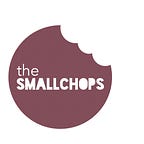Human Trafficking In Lesotho.
What’s the Chop?
This week, we bring you news from our fave African land-locked kingdom — Lesotho — and this time, it’s a lot more serious than deadly love triangles. In June 2020, Lesotho joined the list of the worst performers on the continent — due to its failure to protect its citizens and immigrants from human trafficking.
You lost me at Human Trafficking.
Sadly, human trafficking is big business. Scores of shady people around the world are looking for people to do cheap labour, to become slaves, to prostitute, amongst other things; and scores of equally shady people are ready to help transport unsuspecting candidates across borders for sale. Long story short: that’s human trafficking — the illegal and forced movement or keeping of people through deceit for untoward purposes. It’s especially popular in countries like Iran, Korea, Belarus Eritrea, and even Cuba, amongst others, but chances are, it’s going on in small doses in every country.
Since 2000, the US released a Trafficking in Persons (TIP) Report, which is a scorecard that ranks countries by their efforts to protect and prevent human trafficking within their borders. In 2020, Lesotho became the fifth African country to fall to Tier 3 on the list.
There are tiers?
The ranking falls into four tiers (or categories): Tier 1 is for the best performers; Tier 2 represents those making an effort; the Tier 2 Watchlist is for those countries making little or no visible progress; while Tier 3 represents the worst performers. Tier 3 countries are those whose governments have failed to meet the minimum requirements for the eradication of human trafficking — which are: passing and implementing anti-trafficking laws with strict sentences; and helping to identify, repatriate and protect victims of trafficking.
What’s going on in Lesotho?
For starters, over the past four years, even though human trafficking cases have been consistent, no one has been convicted for human trafficking offenses, and there are even claims that government officials are involved. According to the Global Slavery Index, 58.29% of Lesotho’s population is vulnerable to modern slavery, which means that more than half the population is at risk of being trafficked.
The experiences of trafficking victims are diverse. Some employers take advantage of trafficked men as free labour; they convince them to work on their lands under the guise of employment, only to turn them in to the authorities just before payday. Women and orphans are kidnapped or convinced to migrate on false promises, but end up being forced into prostitution, marriage or domestic servitude. Truck drivers offer to transport women, but rape them and sell them to prostitution rings instead. Some victims are locked in rooms and are continually sexually assaulted.
What’s the government doing about it?
An anti-trafficking bill was recently passed in Lesotho, which will make it possible to trial traffickers, giving long sentences or life imprisonment to those found guilty. The government has also begun to raise awareness by working with international NGOs, and to collect regional data. But more needs to be done, and the US has given the country until February 2021 to meet the minimum standards, or lose all US assistance. This would mean losing their HIV/AIDS funding, as well as the ability to benefit from the Africa Growth and Opportunity Act (AGOA), a trade agreement which basically gives a leg up to African countries by allowing them duty-free access to import particular products into the US.
Your Takeaway
The International Labor Organization (ILO) estimates that there are more than 40 million victims of trafficking globally every year, of which almost 20% are children. While countries like Namibia and Gambia are making some considerable progress, this is simply unacceptable. Namibia, the only African country in Tier 1 has increased the number of prosecutions, helping victims and launching a national awareness campaign. While Gambia got upgraded to Tier 2 based on the government implementing a national action plan, and increasing training for law enforcement to investigate trafficking and identify victims. Undoubtedly, it’s a ton of work to uproot systems like these that have birthed entire ‘industries’, but it’s work that is necessary to ensure the basic welfare of citizens. If a country can’t get its act together on basic human rights, it might as well be a ticking time bomb.
What can I do?
Human trafficking is a big problem that starts with small steps. It may seem far removed from your reality but every human problem is a problem that affects us all. Read more about it and see how you can help.
